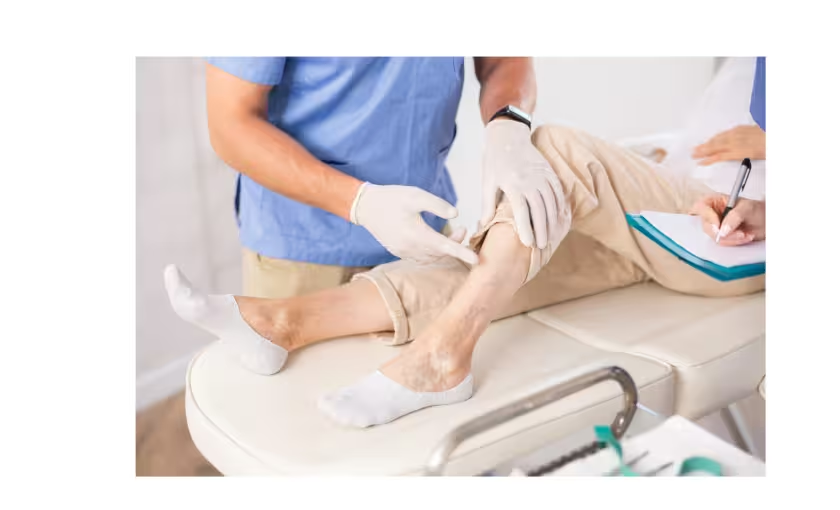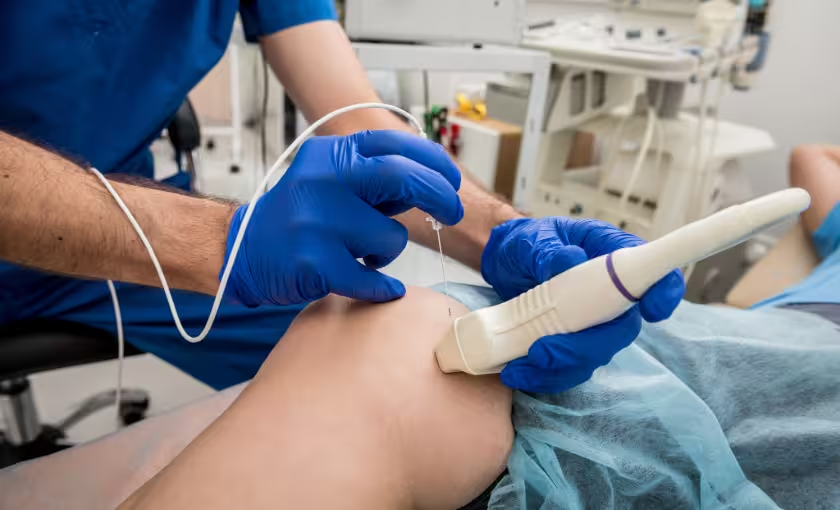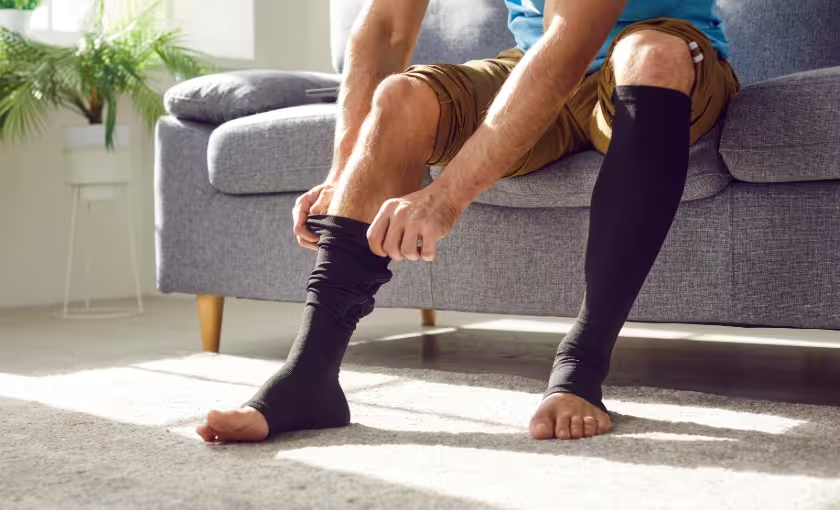Varicose Veins and Pregnancy: Risks, Prevention, and Treatment Options

Congratulations! You're embarking on the incredible journey of pregnancy. While excitement fills the air, you might also have some concerns, especially regarding physical changes in your body. One common concern for pregnant women is varicose veins—those unsightly, bulging veins that can appear on the legs.
But are varicose veins during pregnancy just a cosmetic issue, or are there deeper risks involved? This blog post aims to empower you with knowledge about varicose veins and pregnancy. We'll explore the increased risk factors, potential complications of untreated veins, and, most importantly, how to prevent and manage them for a healthier pregnancy.
Understanding Varicose Veins in Pregnancy: Why Are You More Susceptible?
When valves within the veins malfunction, varicose veins develop, allowing blood to pool and enlarge the veins. During pregnancy, several factors contribute to an increased risk of varicose veins:
- Growing Uterus: As your baby grows, your uterus puts additional pressure on the veins in your pelvis and abdomen. This can hinder blood flow from your legs to your heart.
- Increased Blood Volume: Your body naturally produces more blood to support your growing baby. This increased volume puts extra strain on your entire circulatory system, including the veins in your legs.
- Hormonal Changes: Pregnancy hormones, particularly progesterone, relax the walls of your veins. This makes them more susceptible to stretching and weakening, further contributing to varicose vein development.
It's important to note that varicose veins are a very common occurrence during pregnancy. Studies suggest that up to 50% of pregnant women experience it. While not always painful, they can be a source of discomfort and affect your overall well-being. Additionally, it's essential to differentiate between varicose veins and spider veins. Spider veins are smaller, red or purple veins that appear closer to the skin's surface. Circulation-related varicose veins tend to be larger, bulging, and often blue or purple.
Potential Risks of Untreated Varicose Veins During Pregnancy
While varicose veins might seem like a cosmetic concern, leaving them untreated can lead to complications.
- Discomfort and Pain: Varicose veins can cause achiness, heaviness, or a general feeling of discomfort, especially after prolonged standing or sitting.
- Increased Risk of Blood Clots: In severe cases, varicose veins can increase the risk of developing blood clots (deep vein thrombosis) in the legs. This is a serious medical condition that requires immediate medical attention.
- Leg Fatigue and Swelling: Due to impaired blood flow, varicose veins can lead to persistent leg fatigue and swelling, particularly noticeable around the ankles. In some cases, this can lead to varicose eczema, a condition causing itchy, irritated skin.
- Bleeding: Although rare, in severe and neglected cases, varicose veins can rupture and cause bleeding.
Patient Success Stories: Varicose Vein Treatment Transformations at BASS Vein Center in Pleasanton
Proactive Measures: How to Minimize Varicose Veins During Pregnancy
The positive news is that there are effective ways to minimize your risk of varicose veins during pregnancy and manage existing ones:
- Maintaining a Healthy Weight: Keeping a healthy weight before and during pregnancy is crucial. Excess weight puts additional strain on your legs and veins.
- Exercise and Movement: Regular exercise, like walking, swimming, or prenatal yoga, promotes excellent circulation and helps prevent blood pooling in the legs.
- Compression Stocking: Wearing compression stockings as recommended by your doctor can significantly reduce the appearance of varicose veins and improve circulation. They come in various styles and compression levels to suit your needs.
- Elevating Your Legs: Whenever possible, elevate your legs above the heart when resting or sleeping. This helps improve blood flow back to your heart.
- Avoiding Restrictive Clothing: Tight clothing that constricts your legs can hinder circulation. Opt for loose-fitting clothing that allows for comfortable blood flow.
Treatment Options for Varicose Veins During Pregnancy
It's important to consult with your healthcare professional or a vein specialist if you're concerned about varicose veins during pregnancy. Medication restrictions during pregnancy may limit your treatment options. However, some safe and effective options can help manage symptoms:
- Compression Stockings: As mentioned earlier, compression stockings remain a key tool for managing varicose veins during pregnancy.
- Sclerotherapy (in specific cases): This minimally invasive treatment involves injecting a solution into small spider veins to cause them to collapse and fade. However, it's crucial to discuss this option with your doctor to ensure its safety during pregnancy.
- View All Other Treatment Options Here
Remember, some minimally invasive treatment options for varicose veins might be considered after childbirth. Your doctor can discuss the most suitable approach based on your specific situation.
Will My Varicose Veins Come Back After Vein Treatment?
Taking Control of Your Health: Addressing Varicose Veins During Pregnancy
Varicose veins are a common occurrence during pregnancy, but they don't have to limit your experience. By understanding the increased risk factors and taking proactive measures like maintaining a healthy weight, exercising regularly, and wearing compression stockings, you can significantly minimize their development and discomfort.
Remember, early discussion with your healthcare professional is crucial. They can address your concerns, develop a personalized plan to manage your symptoms, and ensure a healthy pregnancy journey. Don't hesitate to ask questions and express any discomfort you might experience.
Here at BASS Vein Center, we understand the importance of comprehensive care during pregnancy. Our team of qualified healthcare professionals is committed to offering support and guidance throughout your pregnancy journey. If you're concerned about varicose veins or any other pregnancy-related issues, don't hesitate to schedule an appointment or Call Us at: 925-281-5912. We're here to help you have a healthy and comfortable pregnancy!
Take the First Step Toward Healthier Legs








